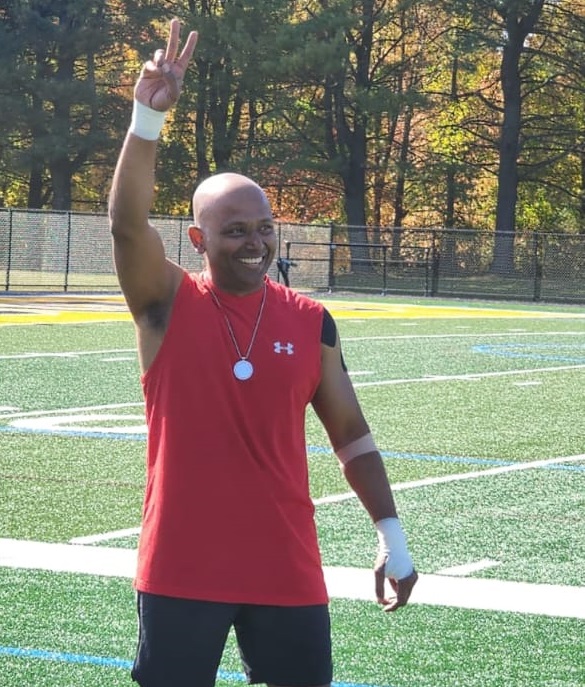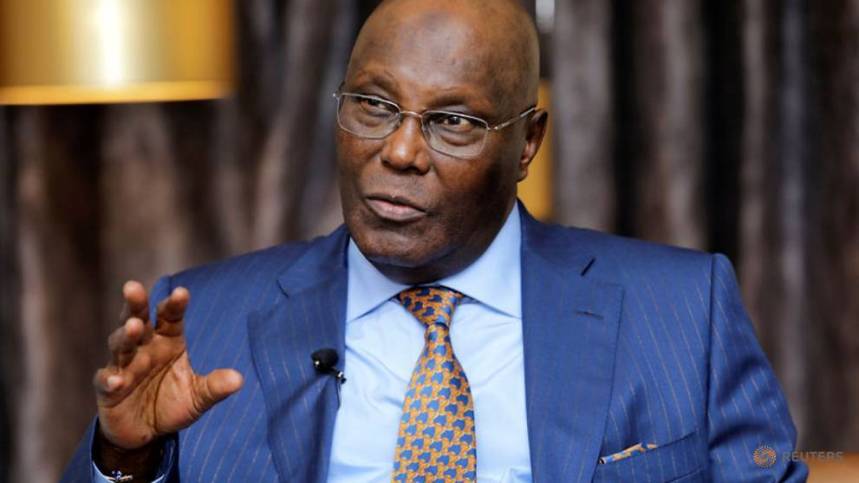In the afterglow of lifting her first Wimbledon trophy, wheelchair tennis player Kgothatso Montjane has revealed she was suddenly left with an "immense void" in her life.
The 38-year-old says the death of her mother Margaret, from kidney complications at the end of July, had a profound impact on her mental health.
"To lose a mother in that time of your life - whereby you just won Wimbledon, you're trying to celebrate - all those things come crashing [down]," Montjane told Newsday on the BBC World Service.
Montjane opted to pull out of the Paris 2024 Paralympic Games, a decision she described as "one of the most difficult" she has ever had to make,, external in order to prioritise her wellbeing.
All-time great Billie Jean King, the winner of 39 Grand Slam titles, was among those who sent messages of support to Montjane on social media before the South African returned to elite action at the Wheelchair Tennis Masters last week.
"If it wasn't for the support that I got, I just couldn't imagine myself coming back," Montjane explained.
"From my management team, everyone has been there for me. I’m just happy to be playing tennis again."
Now that she has returned to the court, Montjane's focus is on picking up where she left off in south-west London.
She made a victorious return at the Masters event in the Netherlands - which is for the best-ranked players of the year - beating Aniek van Koot in three sets in the singles before a doubles win with her Wimbledon partner Yui Kamiji.
However, Montjane could not progress from her group in the singles competition and she and Kamiji exited the doubles in the semi-finals.
"This year hasn't been easy for me, but because I love the game I always try my best to make sure that I stay at the top," Montjane said.
"The Masters are a benchmark of your year-end results. It's important for the top players to take it up among themselves to show greatness."
Polokwane-born Montjane has been consistently rated among the top ten wheelchair tennis players over the past decade, and is now ranked seventh in singles and fourth in doubles.
Her women's doubles win at Wimbledon alongside Kamiji followed their Grand Slam successes at the French Open and US Open last year, while the pair were beaten finalists at January's Australian Open - the only Grand Slam title that still eludes Montjane.
She regards her passion for the game as being a key factor behind her success.
"It's just a matter of keeping yourself motivated," she said.
"Tennis is not an easy sport but you really need to stay interested and have that edge to always want to do better. Love for the game is going to help you stay consistent."
Montjane was born with amniotic band syndrome, a condition that prevents limbs from developing properly, and had her left leg amputated below the knee at the age of 12.
Having taken up wheelchair tennis aged 19, she has become an icon of disability sport in South Africa.
Her influence extends off the court, and in Johannesburg earlier this month she was named as both sports personality and role model of the year at the Feather Awards, which describes itself as Africa's biggest queer awards ceremony.
As she approaches the end of her career, Montjane hopes to leave a legacy in a country where the bulk of the black majority do not have the money required to pursue tennis at a competitive level.
As the first black South African woman to qualify for Wimbledon, the left hander is optimistic her participation in Grand Slam tournaments can inspire others across the continent to pick up a racket.
"Someone needs to be doing it so that others develop an interest in it," Montjane outlined.
"Among all the achievements that I have, I'm remaining hopeful that we will see other upcoming youngsters who take up the sport and try [to] take over.
"I don't think I have a lot of years left in me. I'm hoping that it can spark that interest and inspire others."

 1 day ago
1
1 day ago
1














 English (US) ·
English (US) ·